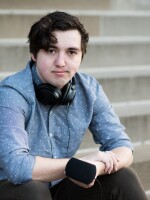The work of protecting communities from wildfire isn't just about fighting active fires in the area. Communities also have to prepare their houses and land to help protect them against future fires.
NSPR's Alec Stutson spoke with Fire Advisor for the University of California Cooperative Extension Lenya Quinn-Davidson about community strategies for wildfire prevention.
This interview has been edited for brevity and clarity.
On the strategies communities can use to prepare for wildfire season
I'm really focused on prescribed fire and restoring fire as a tool on both public lands and on private land. When I say prescribed fire, I mean using fire under specific conditions, whether that's reducing fuels and mitigating fire risk, or restoring habitat and dealing with invasive weeds. We're trying to increase our collective capacity to do that work, because we know we need more of it. And we simply aren't doing it at the scale that we need.
On the impacts prescribed burns have on local wilderness
Prescribed fire really can set us up for success when wildfires come into a specific landscape. Not only do prescribed burns reduce the fuel loading and make it more likely that trees are going to survive, but they also open [the landscape] up.
It clears out that brush and those small trees and just makes a more open place for fire response, it's a point of entry for crews to get into. If we use prescribed fire in a strategic way around communities or around forested areas that we really care about, it gives us that advantage when a wildfire comes through.
On learning to live with wildfire
I don't even really like to use the word prevention, because I believe that California is a fire-adapted state, and there's no way that we're going to prevent fire in California, we've really got to learn [...] how to allow wildfire to do some of the good work that we need it to do. There's been a lot of discussions lately about letting fires burn in wilderness areas, and what that looks like? How can we use things like prescribed fire and thinning around communities and resources that we really care about and want to protect? And how can we move toward a future where we're actually letting wildfire have a role again. The landscape is just too big for us to physically treat every acre. We need to have some kind of vision, where fire has a natural role again.
On steps communities should take to be ready in the future
I think our agencies really need to be building their capacity. We've seen this year that there has been a complete resource drawdown. We don't have enough crews to get where they need to go. We need more people doing this kind of work, we need more people trained, we need more people to be able to lead not only the fire suppression efforts, but to be doing all the preventative work in the offseason and throughout the year. We're hearing a lot of discussion of prescribed fire training centers in California, of increasing wages for firefighters.
And then increasing the resilience of our actual homes. We need to do the home hardening work, the community planning, and really make sure that we're thinking about fire every time we build a new building in California. No matter if we're in the city, or if we're out in the country. We're seeing that fire is ubiquitous, and we all need to be thinking about it all the time.
Listen to the entire episode of the DIXIE FIRE: Special Coverage here.




